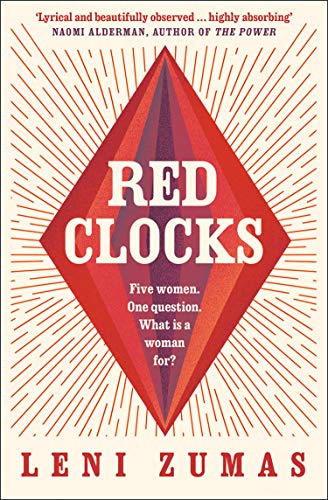

Zumas experiments with different styles that change as we jump from one character to another. Gin provides herbal remedies for abortion, amongst other things, and is the modern-day equivalent of a witch under the new amendment. Mattie is a teenager, pregnant, and unsure of what to do. Susan is something of a cliche depressed housewife, struggling with the dissatisfaction of staying home. Ro is trying desperately to conceive before a new law is introduced banning single parent families. Kalbfleisch has sniffed some ripe tangs in his time. On a scale of one to ten, with ten being the shrill funk of an elderly cheese and one being no odor at all, how would he rank the smell of the biographer's vagina? How does it compare with the other vaginas barreling through this exam room, day in, day out, years of vaginas, a crowd of vulvic ghosts? Plenty of women don't shower beforehand, or are battling a yeast, or just happen naturally to stink in the nethers. Ro's perspective is easily the most palatable, though we still have to sit through a vaginal exam that unfolds like this: Zumas refers to the four main characters as "The Biographer" (Ro), "The Wife" (Susan), "The Daughter" (Mattie) and "The Mender" (Gin), with the fifth perspective being that of fictional explorer, Eivør Minervudottir, who "The Biographer" is writing a book about.Įach of the main four are dealing with womanhood issues that are threatened by the new laws. I have to assume the emotional distance is intentional. Red Clocks would be a horror story for many women, including myself, and yet I felt so emotionally-distanced from the story and all four (or you could say five) perspectives. It is such a painfully cerebral read, and it feels to me like a book of this kind has the greatest impact when you are pulled deep into the lives and horrors of the characters, not viewing them through a distant lens.

But, unfortunately, the amount of "literary" frills in Red Clocks made it almost impossible to enjoy (maybe that isn't the right word, but you know what I'm saying).

and the fervor of pro-life advocates, it is not a particularly implausible scenario.

The Canadian government assist by erecting a figurative "Pink Wall" across the U.S.-Canadian border, meaning that they will capture and return any woman suspected of crossing the border for an abortion or IVF. Here, Zumas imagines a United States where the Personhood Amendment gives rights to unborn embryos, outlawing abortion and IVF (because said embryos cannot give consent). Between this and the superhero-movie-turned-superhero-book trend, you can pretty much predict the new book trends based on what's popular on the big and small screens. I guess we can probably expect more of these weird feminist(?) dystopias in the wake of The Handmaid's Tale's Hulu series.


 0 kommentar(er)
0 kommentar(er)
